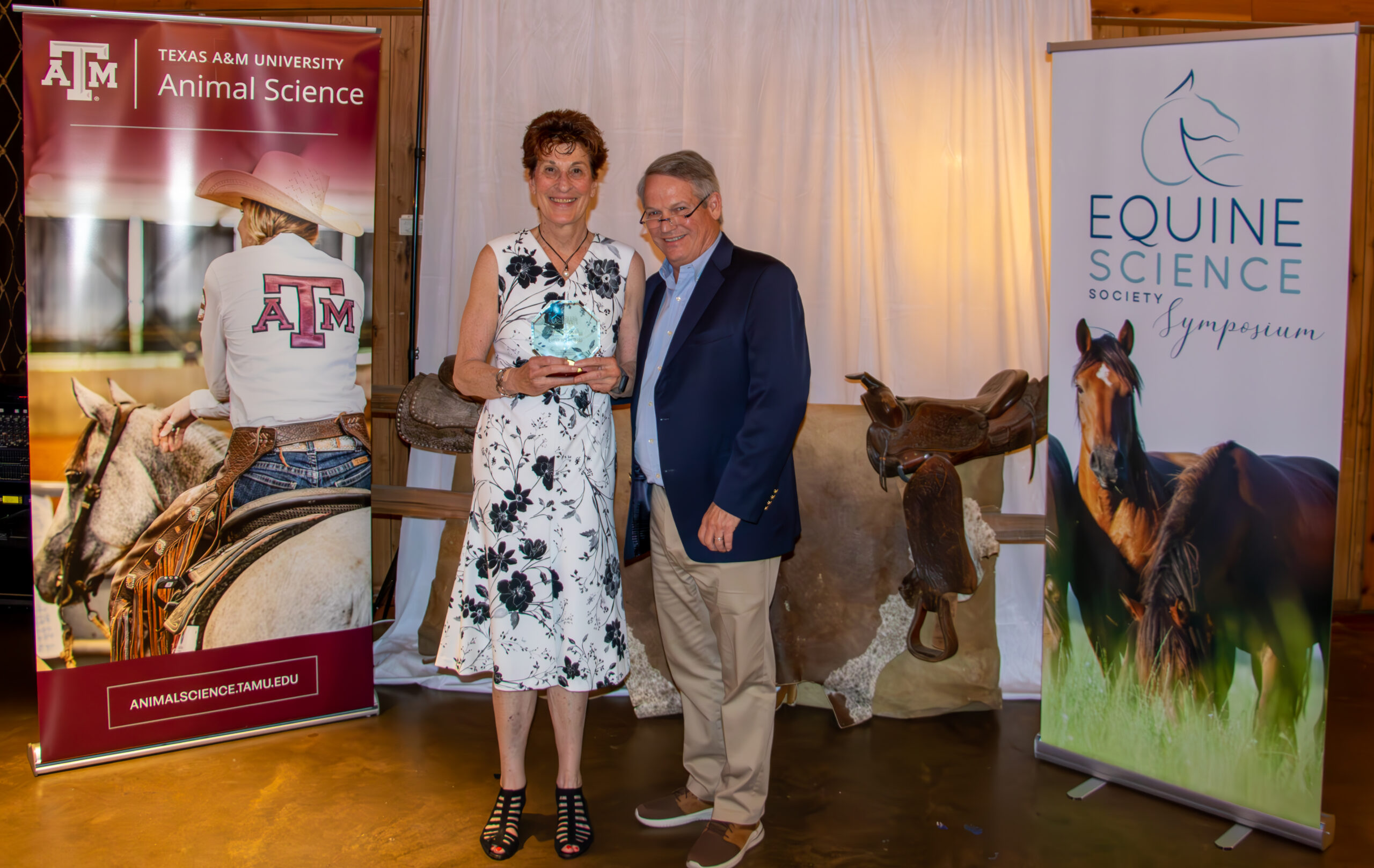NEW BRUNSWICK, NJ –
Dr. Karyn Malinowski, founding director of the Equine Science Center at Rutgers University, received the 2023 Distinguished Service Award at the 2023 Equine Science Society Symposium in Grapevine, Texas, on Friday, June 9, 2023. Presented to her during the Equine Science Society Symposium’s 2023 Awards Banquet, the award is the most prestigious honor that the Equine Science Society can bestow upon one of its members.
The Distinguished Service Award in Equine Science recognizes outstanding contributions in the field of equine science. Award recipients must also have a record of significant accomplishments in teaching, research and extension or service as it relates to the advancement of the equine sciences and horse industry.

Dr. Malinowski has served as a faculty member at the School of Environmental and Biological Sciences since 1978 in various roles, including Extension Specialist in Equine Sciences, Animal Sciences Professor, Founding Director of the Equine Science Center, and the Director of Rutgers Cooperative Extension.
Her research and extension programs concentrate on improving the equine athlete’s well-being and quality of life while ensuring the equine industry’s vitality and viability, both statewide and nationally.
After having the opportunity to drive the famous Niatross, she was bitten by the bug and spent several summers learning how to drive harness horses. In 2001, Malinowski acquired her first Standardbred racehorse, Could Be Magic, who carried her to victory in her amateur debut in 2003 at Freehold Raceway.
“I am deeply honored and humbled to receive this prestigious award from the Equine Science Society,” said Dr. Malinowski. “It has been my extreme pleasure to have worked for over four decades with top-notch young people and horses!”
For additional information, contact Kyle Hartmann at kylehart@njaes.rutgers.edu or 848-932-9419.
About The Equine Science Society
The Equine Science Society (ESS) developed from an interest in sharing horse nutrition research which led to the first symposium held in 1968 at the University of Kentucky. ESS was officially formed in 1970 under the name Equine Nutrition and Physiology Society. In 1975, the society drafted its first by-laws, and in 2003, the society changed its name to ESS to more accurately reflect the diverse equine-related disciplines that were encompassed by the society. Since then, ESS has been a cornerstone for equine professionals to connect and share their research, ideas, and expertise on a wide range of equine-related topics, including biosciences, exercise science, genetics, nutrition, reproductive physiology, production and management, and teaching and extension.
The objectives of ESS are to: promote quality research in the areas of equine science; establish effective communication among researchers, teachers, extension, and production personnel regarding equine science; conduct periodic symposia; and cooperate with other organizations having similar or related interests.
Over the years, ESS has established itself as one of the preeminent, internationally-recognized scientific equine organizations, advocating for and advancing the care of equines through extensive contributions in the areas of equine research, teaching, and extension. The future of ESS continues to shine bright with a strong commitment to professional development, student involvement, sharing of research-based information, membership communication, and collaboration opportunities, and will continue to evolve to address the diverse needs of the equine industry.
